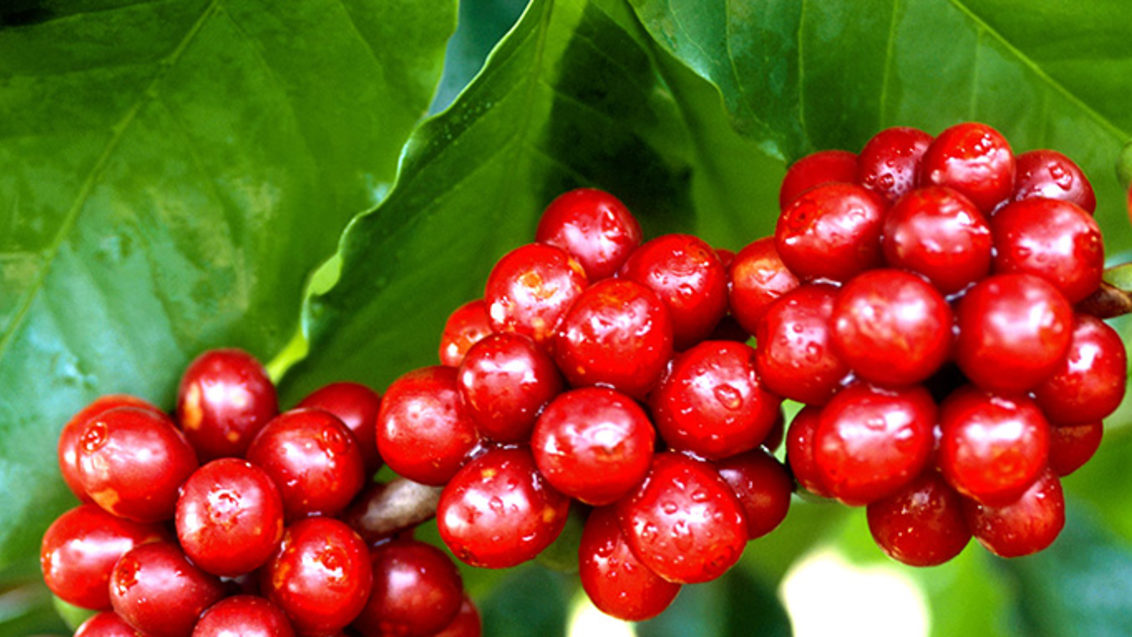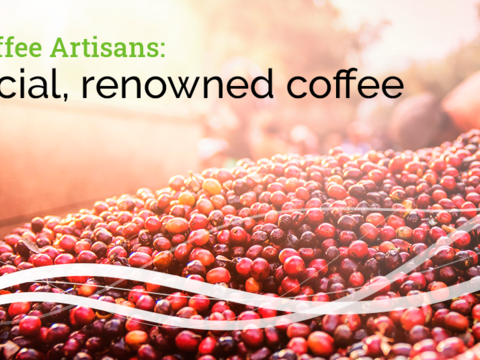Specialty coffees: complexity in taste, aroma and quality

The Brazilian coffee market has achieved remarkable numbers in recent years. At the end of 2022, Brazil set a new revenue record in exports, exceeding U$ 9.2 billion, with a production that took over 50.92 million bags. Arabica coffee represents the largest volume – mainly produced in Brazil's Center-South region –, totalizing the quantity of 44.36 million bags of processed coffee grains. The State of Minas Gerais is the largest producer, delivering 43% of the national production.
Brazilian coffee is considered a reference and has increasingly conquered the global market (commentaries about the domestic market are not necessary, because Brazilian people are champions in starting the day with a good cup of coffee). Thinking about the daily presence of coffee at the table of Brazilians and other populations, in despite of the flavor and the aroma, it is necessary to think about the quality and the benefits that this beverage can offer to health.
Several researches indicate that coffee can contribute positively to health, ranging from anti-inflammatory action to protection against neurodegeneration. In this way, specialty coffees can add value to the beverage production and deliver benefits to consumers, in order to gradually gain notoriety and conquer the palate of coffee lovers. The specialty coffee market has encouraging and consistent growth estimates every year, increasing approximately 7% annually.
Growth in the scope of specialty coffees
Nucoffee, an enthusiast about specialty coffee production and a pioneer enterprise in the segment, has been investing and developing new technologies in partnership with several institutions, besides, of course, those who provide the raw material so much valued by the Brazilian population: coffee producers, which are primordial point of this chain so appreciated in the four corners of the world.
According to the ABIC (Brazilian Coffee Association), in the last survey conducted on the quality of coffee produced in Brazil, the certification of products considered high-qualitative grew 51% between 2017 and 2021. Coffee consumption in the country also increased. Brazil currently occupies the second position among largest coffee consumers in the world, behind only the United States.
Although the specialty coffee category emerged in 1991 at the initiative of BSCA (Brazil Specialty Coffee Association), it was during the last decade that this segment gained market in Brazil and worldwide. There are already virtual auctions organized in partnership with international agencies of specialty coffees, where the 60 kg bag of coffee can be sold for up to R$ 28,947, a value greater than 1000% compared to the regular price of the bag sold on the market. It’s known that one auction yielded a marketing amount equivalent to R$ 1.2 million.
However, in 2018, the record selling price of a coffee bag reached R$ 73.000, reaching a score of more than 90 points.
When is coffee considered special?
Coffees can be considered special when the grains are free of impurities and imperfections that can distort its sensorials characteristics, in this sense, should result in a balanced drink, qualified above 80 points in the sensory analysis, according to the Protocol of the SCA (Specialty Coffee Association). The factors evaluated are:
- fragrance/aroma: refers to the smell of the dry powder itself, and the smell of coffee when wet;
- flavor: considered the main characteristic of coffee;
- aftertaste: it concerns the sensation felt after drinking the beverage, reflecting the residual quality of the coffee;
- acidity: among all attributes, acidity is one of the most important.
- body: parameter related to the amount of oils present in the seeds. It must be pleasant;
- uniformity: parameter that assesses the similarity between different cups made from the same coffee batch;
- absence of defects: it is related to strange flavors that should not be present. They often reflect the presence of green grains, or burned and black, among others.
- Minimal sweetness: one of the steps that can alter the sweetness of a coffee is the roast. In this sense, the so-called dark roasts degrade the sugar completely, while the medium ones result in caramelization and the light roasts preserve a greater number of sugars. Regarding this aspect, it is expected that the drink has a sweet residual taste, or minimum sugar content;
- balance: refers to the balance of the drink, added to the taste, acidity and body. The resulting flavor must be harmonic and balanced;
- Final concept: this score refers to the dressing taster's impression of the drink. The only subjective evaluation among all the evaluations performed;
- final result: it is the final score obtained in relation to all the attributes evaluated, which receive a score from 0 to 10, and must be higher than 80 to fit the category of special coffees. In this score, possible imperfections are discounted in each of the steps, which result in discounts of the note. Therefore, the final result is the sum of the evaluations minus the notes of defects observed in each of the cups tasted and evaluated.
In addition to these attributes, specialty coffees must still meet sustainability criteria and have certified traceability, which allows consumers to follow the entire trajectory of the raw material to the manufacture beverage.
How are specialty coffees produced?
Specialty coffees have been present in the market for many years, however, it was in the last decade that this segment has reached the taste of consumers. Currently it is possible to find in the market coffees from various regions, with different processing methods, as well as roasting levels and other factors that may confer unique sensory characteristics to the drink.
All this is possible thanks to innovations in cultivars, adaptations of genetic materials for regions with specific edaphoclimatic characteristics (climate, height, soil type, temperature, precipitation, and others) and that allow coffee cultivars to express their full potential.
Management is also fundamental in this process, as well as cultural treatments (such as pruning, fertilization, pest and disease control) and harvest and post-harvest stages. The harvest point can also influence the production of good coffee.
The processing of coffee is also a crucial point for obtaining the special coffees. In addition, the manipulation of the roast, subsequent step, also allows to express complex notes in the production of the coffee.
Nucoffee has leveraged the specialty coffee segment in recent years
Nucoffee seeks innovations and solutions, through research, that can add value to the coffee produced by Brazilian producers, and also invest in successful partnerships in search of quality and differentiation of coffees produced for the health of consumers. These are examples of Nucoffee's success cases: Nucoffee Sustentia program, Nucoffee Artisans technologies and Nutraceutical Coffee.
Nucoffee Success Cases
Technologies: Nucoffee Artisans and Nutraceutical
The Nucoffee Artisans program was created in 2017. It is the result of a partnership between Syngenta and UFLA (Federal University of Lavras), which objective is to increase the quality of coffees and model the sensory profile of the coffees produced.
Research involving this technique has been ongoing for more than 24 years, as it was improved before being available to producers.
Nucoffee Artisans' main benefits include:
- coffees produced by artisans induced fermentation technique achieves high scores and, therefore, has different flavor and quality;
- allows greater consistency between the crops produced;
- connection with international roasters ;
- technology combined with traceability of all stages of production and processing;
- it is possible to improve the quality of coffee, helping the producer to increase its profitability.
The Artisans technique of induced fermentation is performed by inoculating previously selected yeasts that transform the chemistry of coffee beans, allowing new aromas and flavors.
The Nutraceutical Coffee
The nutraceutical coffee is the result of a partnership between Syngenta and UFLA (Federal University of Lavras). It is based on the use of 30% of green grains, resulting in a 40% increase in antioxidant properties, combining quality and health flavor for consumers.
As a result, coffees made from this technique has unique characteristics, such as greater sweetness, complexity of notes, acidity and body, expressing an unparalleled flavor to the palate of consumers.
Programs: Nucoffee Sustentia and Nucoffee Direct
The Nucoffee Sustentia program is part of the Nucoffee platform, created by Syngenta in 2014 to operate in the coffee production chain. Its function is to connect with transparency producers and roasters of the international market, promoting the evolution in the quality of coffees produced through technologies and services.
In the Nucoffee Sustentia program, producers receive guidance and training to adopt the best agronomic, environmental, and social practices, in addition to optimizing property management , in order to obtain the Rainforest Alliance certification.
Some of the benefits are:
- collective certification of rural properties linked to cooperatives or resales;
- participants have access to the SGI (Internal Management System)
- on-site visits by Focal Point, to guide and monitor the adequacies of the farms;
- when the properties chosen for audit meet the strict requirements for the UTZ Code of Conduct, all participating properties of the group receive the UTZ seal of sustainable coffees;
- improvement in operational efficiency and profitability of producers;
- promotion of the facilitated access to new sustainable coffee markets.
Nucoffee Direct
Nucoffee Direct, on the other hand, offers customized services to producers, providing direct connection with roasters. This connection allows several advantages, such as the envisioning of the purchase of coffee. In addition, from the program, Nucoffee follows the family succession, increasing the production and quality of coffees grown on the farm.
Nucoffee, once again, helps compose the successful trajectory of Brazilian coffee in front of the eyes of the world, showing quality, technology and innovation.
Visit our website and don't miss any of the news we have to offer!

